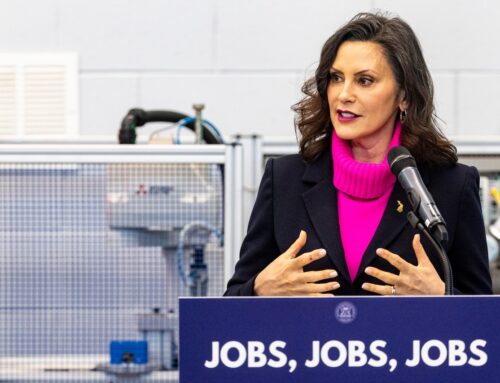Cannabis dreams go up in smoke
June 26, 2025

In the fertile plains of Nakhon Ratchasima, Somkiat Nitiketkosol tends to his cannabis farm, Suan Fah Yim, with a heavy heart. For years, small- and medium-sized cannabis growers like him have weathered fierce competition, plunging prices and shifting government policies.
Now, with the Ministry of Public Health’s recent order to tighten cannabis regulations — reverting it to a controlled substance to be used strictly under medical prescription, with the ultimate goal of relisting cannabis as a narcotic within 45 days — many farms are facing closure.
“It feels like we are caught in limbo,” Mr Somkiat said. “The new rules require us to upgrade from GAP [Good Agricultural Practices] to GACP [Good Agricultural and Collection Practices] certification, which costs hundreds of thousands of baht and takes months. For a small farm like ours, it’s almost impossible.”
The pressure has been mounting for some time. Foreign investors have flooded Thailand’s cannabis market, pushing the prices of cannabis flowers from a healthy 500–700 baht per gramme to less than 100 baht today. “We have to stop planting altogether until the government clarifies its stance,” Mr Somkiat says.

Somkiat: Investors flood local market
He fears the new certification system, although aiming for higher standards, may open doors to corruption and exploitation. “Most permits are going to big players, while small farmers like me are left waiting or falling victim to scams,” he warns.
What worries him most, though, is the government’s focus. “Instead of tightening the reins on illegal sellers and unlicensed clinics, they’re creating hurdles for honest growers. We need clear laws, not political games.”
Montri Yiamsungnoen, president of the Korat Loves Cannabis enterprise network, faces a similar fate. His group invested over 10 million baht in cannabis greenhouses, which are now growing morning glory, chillies and aubergines.
Inside a temperature-controlled storeroom, more than 100kg of dried cannabis flowers have been unsold since December.
“We followed the law, but now we’re left with mounting losses,” said Mr Montri. His network, which includes over 450 members — farmers, retirees, civil servants and a former deputy governor — is calling for government compensation.
Still, Mr Montri remains hopeful. “We’re ready to adapt and seek GACP certification for true medical-grade cannabis,” he said. “But we need clear, fair regulations to move forward — without repeating the mistakes of the past.”

Montri: Laments ‘mounting losses’
Reclassification risks
Wisan Potprasat, president of the Community Enterprise Network of Western Herbal Alliances in Kanchanaburi, strongly disagreed with the ministry’s proposal to reclassify cannabis as a narcotic, stating that such a move would severely hinder its development for genuine medical use.
“If cannabis is made a narcotic again, it will be impossible to carry out even basic steps such as research, extraction or trials from the outset,” he said.
“It is unclear how deeply the minister of public health understands the true meaning of medical cannabis,” he said, adding if tighter control is to be imposed, the government must also provide market alternatives to ensure the Thai cannabis industry can continue — and not merely use cannabis as a political tool.
“Today, the cannabis industry is already badly bruised. Entrepreneurs have tried to adapt to global standards, each fending for themselves, with no unity or cohesion,” Mr Wisan said. “If the government continues to exacerbate the situation without serious and systematic solutions, this industry will collapse — just like other political promises: say it, then abandon it.”

Wisan: Plan holds back development
Shops brace for change
Far from Nakhon Ratchasima, in the bustling city of Khon Kaen, also in the northeastern region, cannabis dispensaries are bracing themselves for transformation.
At Weed Station, owner Phachara Thaisa views the new ministerial order with cautious optimism.
“This will bring order,” he says. “For too long, shops without licences have flooded the market, dragging prices and quality down. If enforced properly, this law could elevate the industry.”
Mr Phachara is already preparing to hire medical staff to ensure compliance with the new prescription-only rule. Purchases will be tightly controlled, with customers limited to about 1g per day or 30g monthly. “Yes, sales volume might drop, but quality and legitimacy will improve.”
Prices have plummeted due to unregulated sales, he says, but he hopes stricter rules will restore value. “The law might mean higher costs for us — paying medical consultants is expensive — but it allows us to charge fair prices.”
Yet, Mr Phachara notes that the government must back legal operators with clear guidelines and support. “Many of us pay significant taxes. We deserve transparency and fairness, not sudden crackdowns without help.”
Dr Thanakrit Jitareerat, an assistant public health minister, has confirmed that cannabis without a doctor’s prescription is illegal, punishable by fines or jail.
Only licensed professionals — including general physicians, Thai traditional doctors, Chinese medicine practitioners and pharmacists — can authorise cannabis use.
“Recreational use is prohibited,” Dr Thanakrit said. “We aim to protect our youth and public health by controlling the quantity strictly and monitoring sales.”
Still, enforcement is in its early stages, and the ministry is setting up systems to track and audit sales.

Phachara: ‘Quality will improve’
Promises and concerns
Cannabis holds real medical potential, with thousands of licensed practitioners able to prescribe it in Thailand. The Department of Thai Traditional and Alternative Medicine is training doctors and dispensaries to ensure safe, effective use.
Yet the easy availability of cannabis post-liberalisation has also led to rampant illegal sales, youth consumption and public nuisance, complicating efforts to regulate the market responsibly.
Medical experts like Assoc Prof Smith Srisont of Ramathibodi Hospital caution that only fully reclassifying cannabis as a narcotic, with strict controls, can stem recreational misuse and protect vulnerable populations.
Meanwhile, Daycha Siripatra, a cannabis advocate and traditional medical practitioner, argues the government’s rush to reinstate controls may be politically motivated or influenced by vested interests such as the alcohol and pharmaceutical industries.
For many farmers, dispensary owners and tourism operators, the key will be clear laws, transparent enforcement and government support to transition from an open, chaotic market to a sustainable, responsible cannabis sector.
As Somkiat Nitiketkosol in Nakhon Ratchasima puts it, “Cannabis has potential to help many — medically, economically, socially — but only if the government gets the rules right. Otherwise, we all lose.”
Regulatory Uncertainty
Minister of Public Health Somsak Thepsutin acknowledged the frustrations and anxieties of business operators over the possibility of cannabis being reverted to narcotic status, especially after their investments.
“Medical cannabis businesses will receive our full support. We must work together on how to promote this sector. If, in the future, the social climate demands it be classified as a narcotic, I do not want to cause conflict or headaches, but to collaboratively resolve the issue. Should licences need to be renewed or reapplied for due to the change from controlled herbal product to narcotic, no legal disputes will arise”.
He said reclassifying cannabis as a narcotic within 45 days is not difficult since the law already permits it.
“There is no need to panic. I am not unreasonable — I want wealth to come into the country, but also to avoid problems for others, ensuring trade continues. Prime Minister Paetongtarn Shinawatra is concerned about business and investment. Once an investment is made, it must not be damaged. I believe good entrepreneurs can survive regardless of classification, and most understand this, though some remain argumentative.”
Mr Somsak further explained that the current problems stem from poorly drafted and hastily implemented legislation, noting strong public opposition reflected in repeated parliamentary pushbacks. “If a bill protecting and promoting traditional wisdom as formal medicine with medical certification had passed earlier, we wouldn’t face such confusion now,” he added.
Search
RECENT PRESS RELEASES
Related Post



